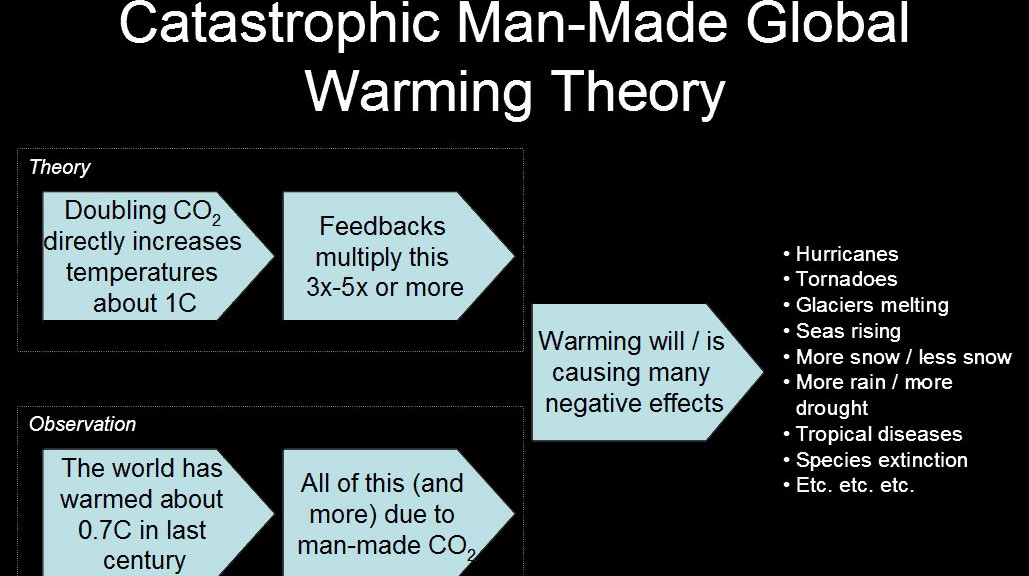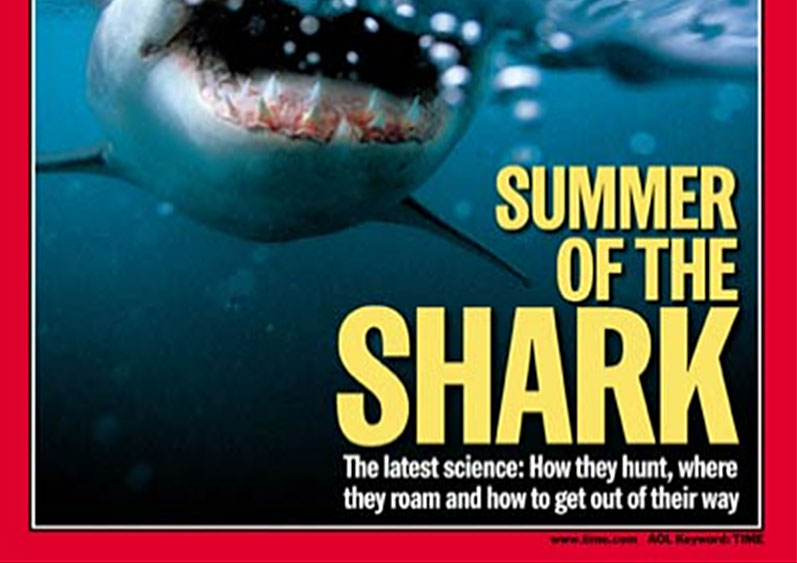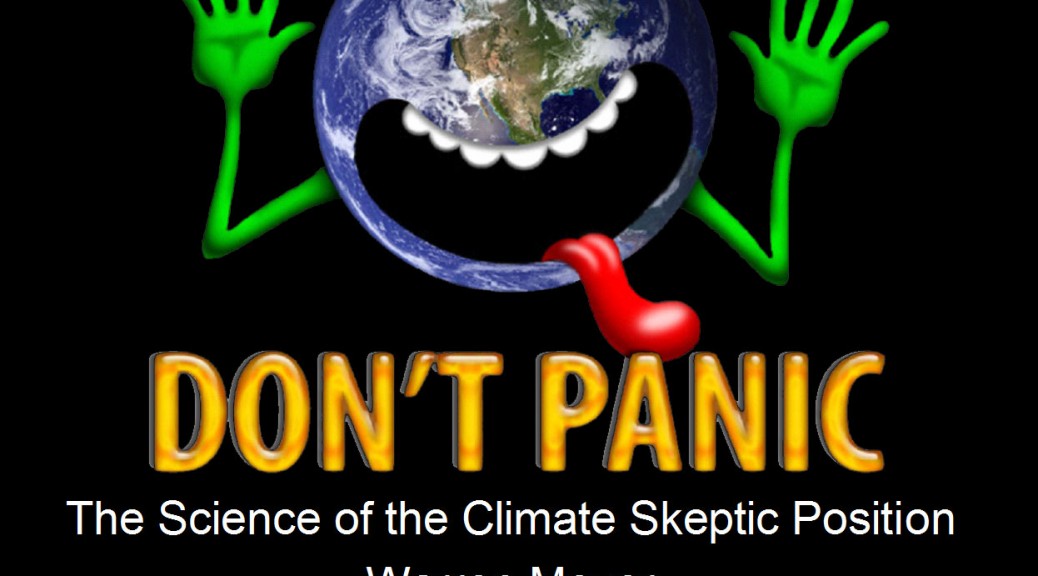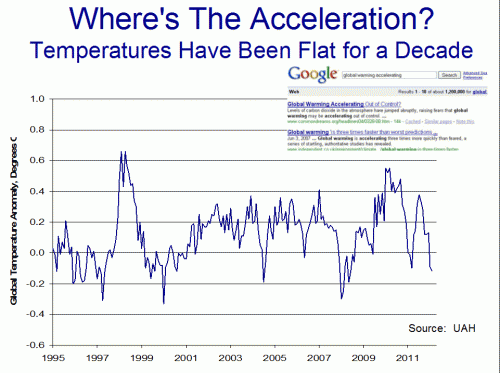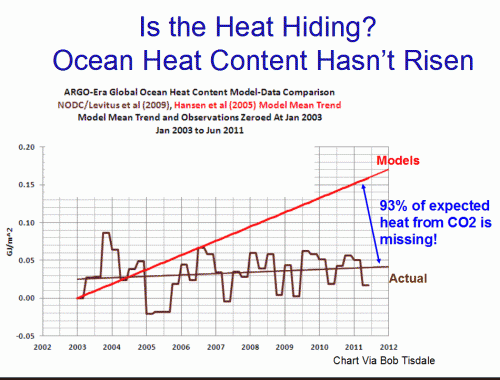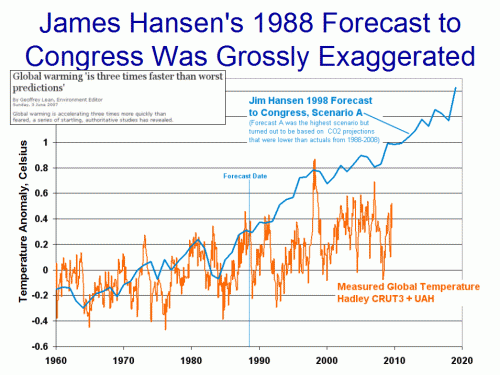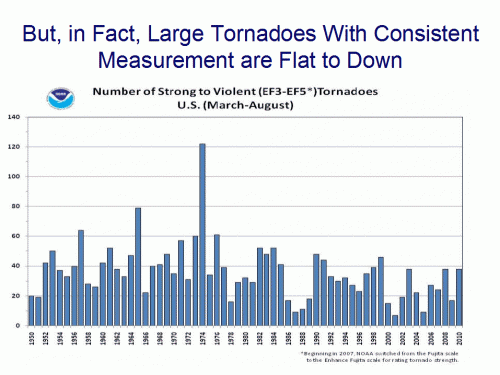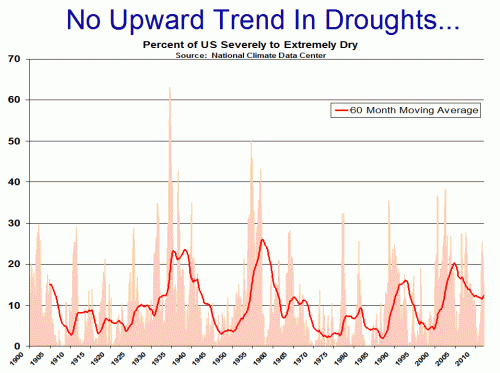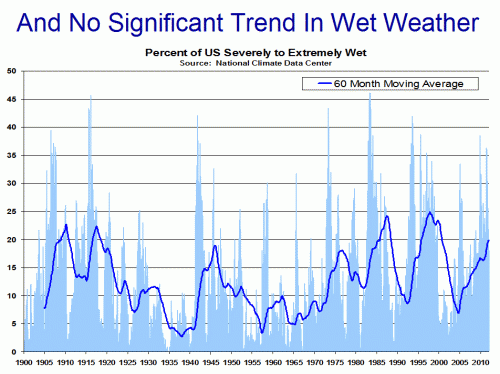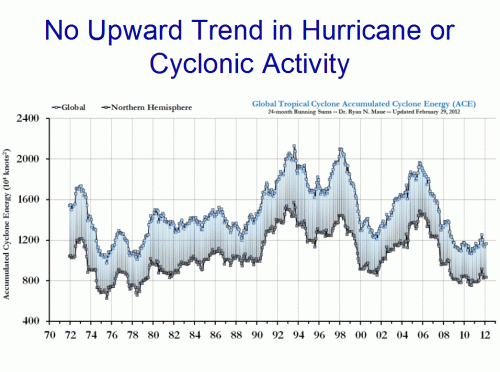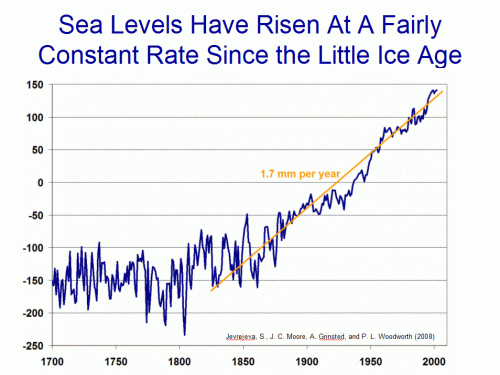I received an email-based interview request on climate a while back from Esquire Middle East. I have decided to include my whole response below. The questions they ask are nearly as informative as anything I say, as they betray that the editors of the publication have pretty much bought into not only global warming alarmism, but all the memes alarmists use to discredit skeptics. Its pretty clear all they know about the skeptic’s position is what they hear from alarmists about skeptics. Anyway, I responded to this from a hotel room in Kentucky and didn’t give it my best but I think it may be interesting to you. The questions are in bold, my answers in normal font.
Do you believe that global warming and climate change are a grave problem to the world at the moment ?
IF NO
What gives you reason to believe that global warming and climate change are not really happening?
I don’t deny they are happening, and neither do any other science-based skeptics. Alarmists like to tell the public that skeptics are taking these positions, in order to discredit them. The climate is always changing without any help from man — a good example is the drying up of North Africa over the last centuries. The period from 1600-1800 was among the coldest in the last 5000 years, so it is natural we would see warming in recovery from this.
Is there any scientific evidence to support that global warming and climate change is not really that harmful
I wrote a 90-minute presentation on this so it is hard to be brief. But here are a couple of thoughts1. I don’t deny greenhouse gas theory, that man’s CO2 can cause some incremental warming. The greenhouse gas theory has to be real, or the world would be much colder right now. No, what I deny is the catastrophe, that temperatures a hundred years hence will be five or ten degrees Celsius higher due to man’s co2
Interestingly, I think most everyone on the scientific end of the debate agrees that the direct warming from man’s Co2 acting alone will be relatively modest – on the order of a degree Celsius by the year 2100 according to the IPCC. Yeah, I know this seems oddly low — you never hear of global warming numbers as low as 1 degree — but it is actually a second theory, independent of greenhouse gas theory, that drives most of the warming. This second theory is that the climate is dominated by strong positive feedbacks that multiply the warming from CO2 many fold, and increase a modest 1 degree C of warming from man’s CO2 to catastrophic levels of 5 or even 10 degrees.
The example I use is to think of climate as a car. Co2 from man provides only a nudge to the car. The catastrophe comes from a second theory that the car (representing the climate) is perched precariously on the top of a hill with its brakes off, and a nudge from CO2 will start it rolling downhill until it crashes at the bottom.
When people say the science is settled, they generally mean greenhouse gas theory. But that means only the nudge is settled. What is far from settled is the second theory of strong net positive feedback in the climate, ie the theory the climate is perched on top of a hill. It is unusual for long-term stable but chaotic systems to be dominated by such strong positive feedbacks. In fact, only the most severe contortions allow scientists to claim their high-sensitivity models of catastrophic warming are consistent with the relatively modest warming of the past century.
2. The amount of unusual climate change we are seeing is GROSSLY exaggerated. We seem to be suffering under a massive case of observer bias in assessing any current effects of climate change. Extreme events, which have always existed, are used by both sides of the debate as supposed proof of long term global trends. But there is little useful we can learn about trends at the tails of the distribution, and it turns out that the means of key weather events in the US, from droughts to wet weather to tornadoes to hurricanes, show no meaningful trends.
We have this incredible hubris that by watching a chaotic system for about 20 years, we fully understand it. But climate has 30-year cycles, 200 year cycles, 1000-year cycles, etc. We don’t even know what is normal, so how can we say we are seeing things that are abnormal. We have seen a lot of melting sea ice in the Arctic, but we think we may have seen as much in the 1930’s, but we didn’t have satellites to watch the ice. And Antarctic Sea ice has been higher than normal while Arctic has been below normal.
Hurricanes are another great example. Al Gore swore that Hurricane Katrina was man-made, but it turns out there is actually a declining worldwide trend in hurricane and cyclone activity and energy, so much so that we hit the lowest level in 2009 since we started measuring by satellite 30 years ago.
Or take sea level rise. Sea levels are rising today and glaciers are shrinking. Sea levels are rising because they were rising in 1950 and in 1920 and in 1880 and in 1850. Sea levels have been steadily rising 1-3mm a year since about 1820 and the end of the little ice age. Ditto glacier retreat, which began around 1800 and has continued steadily to today, though the pace of retreat has slowed of late.
Imagine we wanted to look at customer visitation at a local restaurant that just closed after 60 years in business. If we watched for only a few hours, we might miss the huge variability of the crowds from early morning through each mealtime rush. Watch only for a day, and we might miss the seasonal variation, as vacationers pack the restaurant in March. Watch for just a year, and we might have missed the long, slow decline in visitation that eventually led to the restaurant closing. In climate, we are trying to decide if there is a long term decline at the restaurant after watching for the equivalent of only a few hours.
The reporting on whether manmade climate change is already happening is just awful. We see something happen that we can’t remember happening in the last 20 years and declare it to be “abnormal” and therefore “manmade.” Its absurd, and amazing to me that we skeptics are called anti-scientific when the science being practiced is so awful. The problem is that for academics, who are always scrambling for funds, climate change has become the best source of money. So you can’t just say you are studying acne, you have to say you are studying the effect of manmade climate change on acne. Essentially, we have told the academic world that they can get much more money for their work if they claim to see climate change. So is it any surprise they find it under every rock?
Are most scientists wrong?
I find judging science by counting scientists to be unproductive, so I have no idea. I will say that a lot of folks who sign petitions in support of the alarmist position have not really looked carefully at the science, they are merely showing support because they have been told skeptics are a bunch of religious fundamentalist anti-science types, so they want to express their support for science. It is ironic, as we found in the Climategate emails, that in fact they are supporting bad science, a small core group of scientists who have resisted normal scientific process of sharing data and replication
For some reason, we love to scare ourselves. Or, more likely, many people, particularly younger folks, like to feel that there is some way they can save the world, to deal with their own feelings of insignificance. And one can’t save the world unless it is in crisis. Every generation has these crises, and they are almost always overblown. Look at Paul Ehrlich — he has been wrong about 20 times. He said a billion people would die of starvation by 1980. He is just about never right, but people still lap up every thing he says. Because folks like him give people a sense of mission. And when you demonstrate to them that there is no crisis, they are not relieved (as one would expect someone to be when they find a crisis does not exist) — they are angry that you took their mission away from them.
What do you think is causing temperature changes on a scale never seen before?
Wow, you really are brainwashed. You have an assumption that we are seeing temperature changes on a scale never seen before, and so skeptics must start from this. But in fact the runup in temperatures from 1978-1998 that is the main “proof” of global warming is similar in scale and slope and duration to at least two other temperature increases between 1850 and 1950 which most definitely were not of anthropogenic origins. See here: http://www.climate-skeptic.com/2010/03/oh-maybe-ocean-occilations-are-important.html. There are many issues with which reasonable people can disagree, but your contention about temperature increases being unprecedented is simply wrong and accepted as wrong by about everyone.
What did you think to the results of Copenhagen?
*shrug* Copenhagen had little to do with climate and was much about lesser developed nations trying to extract money from wealthier nations. Climate was just a pretext — do you really think Robert Mugabe or Hugo Chavez care about climate change?
Why do governments seem so concerned with the issue?
The fear of man-made catastrophic climate change gives government officials their best leverage since the repudiation of communism to substantially increase the power of themselves and their government.
If fossil fuels will run out anyway, surely we should move to find alternatives. Why not now?
You are welcome to. Entrepreneurs around the world have been trying to do so for decades. Wealth beyond measure is there for the person or company who is able to do it. What are you going to do to speed it up if such a huge incentive already exists? The government sometimes feels like it can just have its way and wish things into being. It never works.If the technology is not ready, no amount of government prodding or mandating will make it ready. All we will get is more wasted spending and more dead-end technology investments and more public funds poured into the hands of the politically connected. Why hurry if we are not ready? There are still fossil fuels for decades. Why increase the costs to every consumer to hurry this transition to no purpose?
There are perhaps a billion people in the world, particularly in Asia, on the verge of emerging from poverty. They are only able to do so by burning every fossil fuel they can get their hands on. The alternatives that exist today are rich people’s toys, expensive sources of power that we can afford because they ease our guilt somehow. The poor don’t have this luxury.
Even if it is not guaranteed that manmade emissions are to blame, wouldn’t it be wise to act anyway? It’s a hell of a gamble to our children’s future.
Should we spend a trillion dollars on space lasers in case of an alien invasion of Earth? Why not, its a hell of a gamble to our children’s future. We can’t go pre-emptively fix every low-probability problem just because someone claims it might be a catastrophe. Why fix a hypothetical environmental problem when there are 10 other real ones impacting people today that we are ignoring.
The statement you are making only makes sense if the transition if free or low cost. But substantially eliminating fossil fuel use is tremendously expensive. In fact, it is more expensive at this point with current technology than anything the world has ever done. Folks who claim the costs are low are either ignorant or lying. Every major economy will see trillions of dollars of lost output. But forget the rich nations. Remember the billion people emerging from poverty. Strong world action will essentially consign these people to stay in poverty. Do you want your kids 1 degree cooler at the cost of putting a billion people into poverty? It is not the simple question you make it out to be.
Don’t we have a duty to protect or planet for future generations?(i.e. save it from deforestation, pollution etc)
Sure, but as I stated above, we have all kinds of duties to future generations, and not all of them have to do with the environment. But I would argue that the current obsession with small changes to trace levels of CO2 in the atmosphere has in fact gutted the environmental movement. Nothing else is getting done. Take deforestation. My personal interest is in protecting wilderness, and my charity of choice is land trusts that preserve the Amazon. But do you know the #1 cause of deforestation in the Amazon over the last decade? It was the Brazilian ethanol program, which is supposed to be fighting CO2, but now has been shown to do little or nothing for CO2 and it is incentivizing farmers to clear the Amazon to plant more switchgrass and other ethanol crops. Ditto in the US, where ethanol programs are raising food prices and adding to deforestationI would argue that CO2 is not even in the top 10 worst environmental problems in the world. Take clean water in Africa, which I do consider a top 10 problem. The only way Africans are going to get clean water is from using cheap energy to pump and treat water, cheap energy whose only really realistic source is from fossil fuels.
My prediction– 10-20 years from now, environmentalists are going to look back on the current global warming hysteria as the worst thing ever to happened to the environmental movement.
Further comments
Again, this is very off the cuff. I really delve into the science here: http://www.climate-skeptic.com/2010/01/catastrophe-denied-the-science-of-the-skeptics-position.html
SOME CONCLUDING THOUGHTS
OK, so every one of these questions are probing – they are hitting at perceived weaknesses in the skeptic’s position. Fine, it is good when the media is critical. But compare the questions above to the total softballs lobbed at alarmists.
IF YES
How bad is climate change at the moment?
What did you think to the results of Copenhagen?
Is it increasing at an uncontrollable rate? Or is there still a chance to reduce climate change and alter its predicted course of events?
Do you have any comments on the recent e-mail leak scandal that was publicized?
What do you think about the rising levels of climate change skepticism?
How could and/or will climate change or similarly global warming affect the Middle East region in particular the Arabian peninsula?
What about other vulnerable countries?
What can the average citizen do more or less to help reduce climate change and its impact?
What do you predict will happen to major cities in the world if the problem of global warming is not addressed immediately?
How will an increase in global warming change the earth’s natural weather activities i.e. how will people and animals be affected, ecosystems, the weather….
How can we move forward on this issue?
Are you confident we can find a solution?
What are the chances of a new technology saving us? (for example, carbon capture)
Is carbon trading effectively passing the buck? Does it actually help
Only one is arguably critical — the one about the CRU emails — and look at the softball way in which it is asked. The journalists here make no secret of which side they are one.


